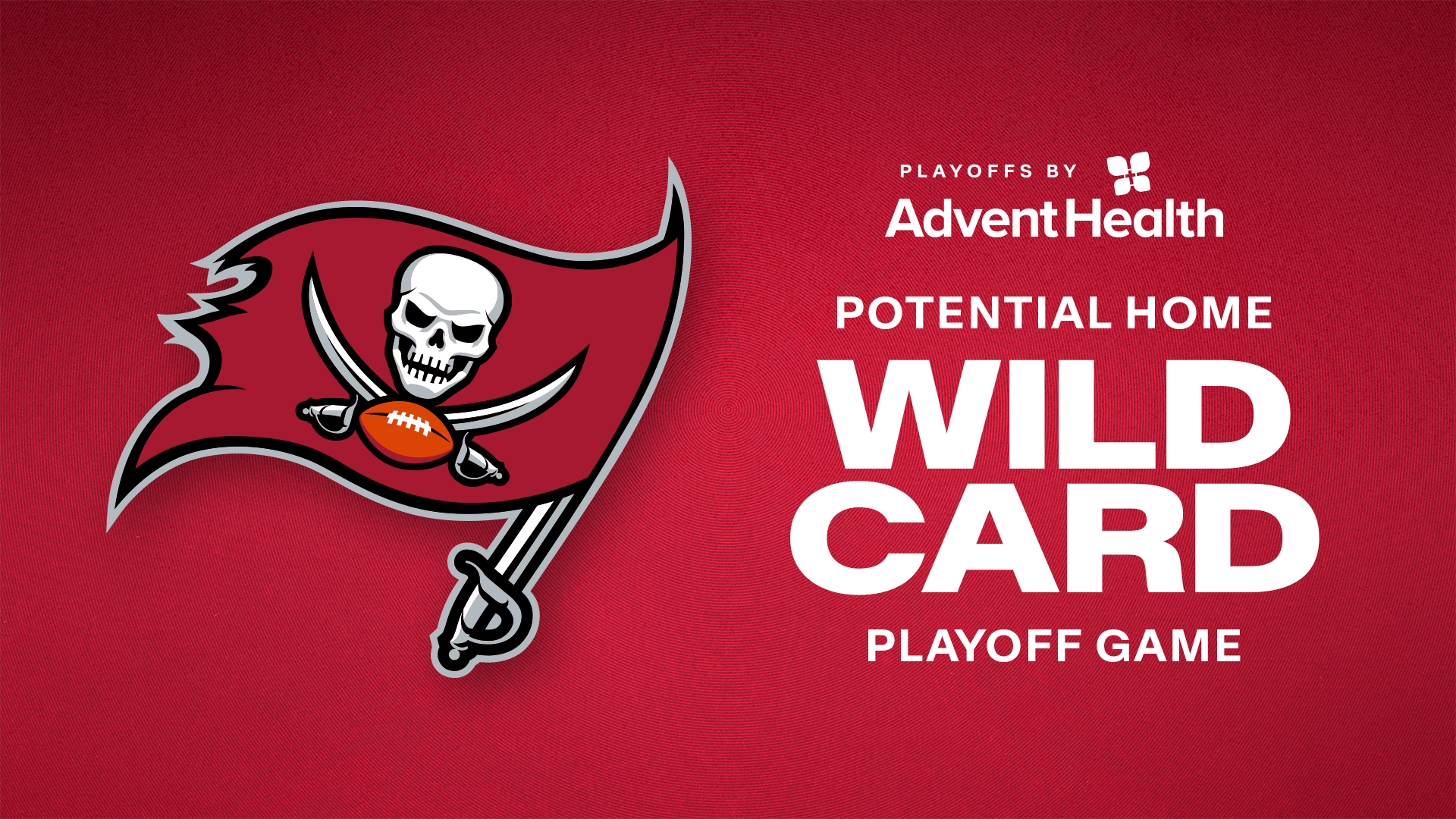- Bucs QB Mike Glennon ranks near the middle of the NFL pack in the average time it takes to get a pass off
- Glennon's performance has been nearly equal on quick-developing plays and ones that take a little longer
- The second-year passer has been one of the quicker quarterbacks to move outside of the pocket this year
Statistics can help illuminate the game of football…or they can take us down a misleading path. As Tampa Bay Buccaneers Head Coach Lovie Smith said: "I believe in stats, but it's [which] stats."
Smith, for instance, doesn't pay much attention to the NFL's defensive rankings, since they are based on yards, which he considers a meaningless measure. When he shares defensive stats with his team, he focuses on points allowed, takeaways, scoring on defense and red zone proficiency.
Here on Buccaneers.com, we unabashedly love stats, but we also understand the need to wield them wisely. Sometimes, we can get a better feel for why the team is performing as it is by going a little deeper into the numbers. And sometimes we can simply point out something we consider interesting, and hope you will find it interesting as well.
That's our goal with Football Geekery. Each week, we're going to give you a sampling of statistical and or historical analysis, hopefully in a way that is relevant to the Buccaneers' current state of affairs. This week we're focusing on just one topic: The possible impact of – and need for – more passing plays that allow Mike Glennon to get rid of the ball quickly. Let's get started.
**
Get Rid of it Quick?
Earlier this week, Quarterbacks Coach Marcus Arroyo – the de facto play-caller in the absence of Offensive Coordinator Jeff Tedford – was asked if it might be prudent to signal in a higher percentage of quick-release passing plays. Obviously, that was prompted by the five sacks and constant pressure QB Mike Glennon endured in the Week Six loss to Baltimore. Prior to that contest, however, the Bucs had allowed just one sack each in games at Pittsburgh and New Orleans, which were Glennon's first two starts of the season.
Obviously, there is room in the Bucs' offensive arsenal for "three-step drops" (perhaps an over-used term) and plays where Glennon gets rid of the football quickly. However, some plays will need time to develop, and Arroyo said his team has to trust that the offensive line will provide the adequate protection when needed.
"In our opinion, the first thing that you look at is protecting the quarterback and we've done a really good job for the most part," he said. "[Against Baltimore], they got after us a little bit, but some situations we can create better. I can do better, we can do better and we can put guys in better situations. We have to protect the quarterback. We've done a really good job and the protection has been forefront in everything we're been doing and we're not going to let last week slow us down as far as our ability to deal with ways to protect [the quarterback] and put him in advantageous situations."
The original question, however, begs this follow-up: Has the ball been staying in Glennon's hands too long up to this point. Fortunately, the number-crunchers at Pro Football Focus have some numbers that can help with that analysis. That second link goes to a set of PFF's "Premium Stats" and thus might not be accessible for everyone, but let's look at some of the highlights in regard to Mike Glennon.

Second-year QB Mike Glennon has been a consistent performer under a variety of situations in 2014
The set of statistics to which we're referring falls under a category called "Time in Pocket," which is broken down in several helpful ways. For instance, all quarterbacks are measured by the average number of seconds it takes them to get rid of the football after the snap. It will probably surprise no one that Denver's Peyton Manning is the quickest to get rid of the ball, on average, at 2.24 seconds. Cincinnati's Andy Dalton is next at 2.28 and New England's Tom Brady is third at 2.40.
Of all the passers who have played at least 25% of their team's snaps this season, Glennon is solidly in the middle of the pack in this category. He has averaged 2.68 seconds to get his passes off, which is nearly identical to that of Atlanta's Matt Ryan (2.69) and a little slower than Detroit's Matthew Stafford (2.62).
Now, when Glennon has taken a sack, the play has needed an average of 3.42 seconds to unfold. That's the 13th-longest figure among the same group of QBs listed above. Glennon slots right between Arizona's Drew Stanton (3.46) and Seattle's Russell Wilson (3.40). The quarterback who has been brought down the quickest, on average, is Atlanta's Ryan, and that makes sense given the rash of injuries the Falcons have endured to their starting offensive linemen. One might expect that the league's more mobile quarterbacks would have the highest number in this regard - presumably, there would be some plays in which they escape initial pressure but then eventually get swarmed over. And, indeed, Geno Smith and Jake Locker are 1-2 on the list (4.59 and 4.04 respectively) and San Francisco's Colin Kaepernick is fourth at 3.89.
Another sub-category in this Time in Pocket section is "Average Time to Scramble." This one shows that, somewhat surprisingly, Glennon has been one of the quickest quarterbacks in the league to pull the trigger and leave the pocket. Stanton is first on that list, scrambling after just 3.65 seconds, followed by Brady (3.97) and Dallas' Tony Romo (3.98). Those are the only three quarterbacks who come in at below four seconds, but Glennon is next on the list at 4.20, just ahead of Baltimore's Joe Flacco and Pittsburgh's Ben Roethlisberger.
The QB who has waited the longest to scramble is the New York Jets' Geno Smith, at an average of 6.01 seconds. Carolina's Cam Newton is next at 5.95, and of course his mobility has been hampered this year by a rib injury. Actually, there are two QBs who could be said to even less prone to scramble: Peyton Manning and Buffalo's Kyle Orton. Neither one has a figure in this column because neither one has had a single rush for positive yards this year. Manning's longest run of the last two years, in fact, was a one-yarder in 2013. Simply put, Manning doesn't need to scramble.
But here's the kicker, as it relates to Glennon: His performance so far on quick-release plays has not been significantly different from his performance on longer-developing plays. PFF breaks all the throws down into ones that took 2.5 seconds or less to leave the passer's hand and ones that take 2.6 seconds or more. Some quarterbacks do have fairly big splits when comparing those two numbers. For instance, young Indianapolis star Andrew Luck has a 112.8 passer rating on throws in the quicker category and 89.1 on throws in the longer-developing category. Conversely, Roethlisberger has a 90.1 passer rating on the quick throws and a 112.6 on the slower ones (this fits with his reputation as a QB who is particularly good at making plays on the move).
That first type of split, the one seen with Luck, is far more common, and some of them are rather drastic. Philadelphia's Nick Foles does much better when he gets rid of it quick, with a 108.4 rating in the former category and a 56.8 in the latter. Other QBs with similarly large splits are Flacco, Orton and Washington's Kirk Cousins.
So, how about Glennon? Well, he has one of the least noticeable splits. His passer rating on throws made after 2.5 seconds or less is 87.4, and it's 86.0 on the others. That difference of 1.4 passer rating points is the second-smallest split among all the QBs. Green Bay's Aaron Rodgers has the smallest split, and he achieves it in an incredibly impressive fashion, with a 117.3 rating in the former category and a 117.2 in the latter. Here are the 10 NFL QBs with the smallest differences between their passer rating on throws that take 2.5 seconds or less to get out and throws that take 2.6 seconds or longer (no matter which number is higher):
|
Player |
Team |
≤2.5 |
≥2.6 |
Diff. |
|
GB |
117.3 |
117.2 |
0.1 |
|
TB |
87.4 |
86.0 |
1.4 |
|
HOU |
89.4 |
87.3 |
2.1 |
|
CAR |
90.8 |
88.3 |
2.5 |
|
NE |
95.3 |
98.4 |
3.1 |
|
NYG |
95.0 |
100.2 |
5.2 |
|
DET |
89.8 |
84.3 |
5.5 |
|
AZ |
72.8 |
79.7 |
6.9 |
|
CHI |
98.1 |
89.7 |
8.4 |
|
DEN |
122.6 |
114.1 |
8.5 |
Every NFL offense needs a sub-section in the playbook devoted to quick-release passing plays, and there is some evidence that specific quarterbacks in the league are much more effective with that type of attack. That doesn't seem to be the case with Tampa Bay's Mike Glennon, however; count on the Buccaneers' play-callers to continue seeking balance in their approach.
























